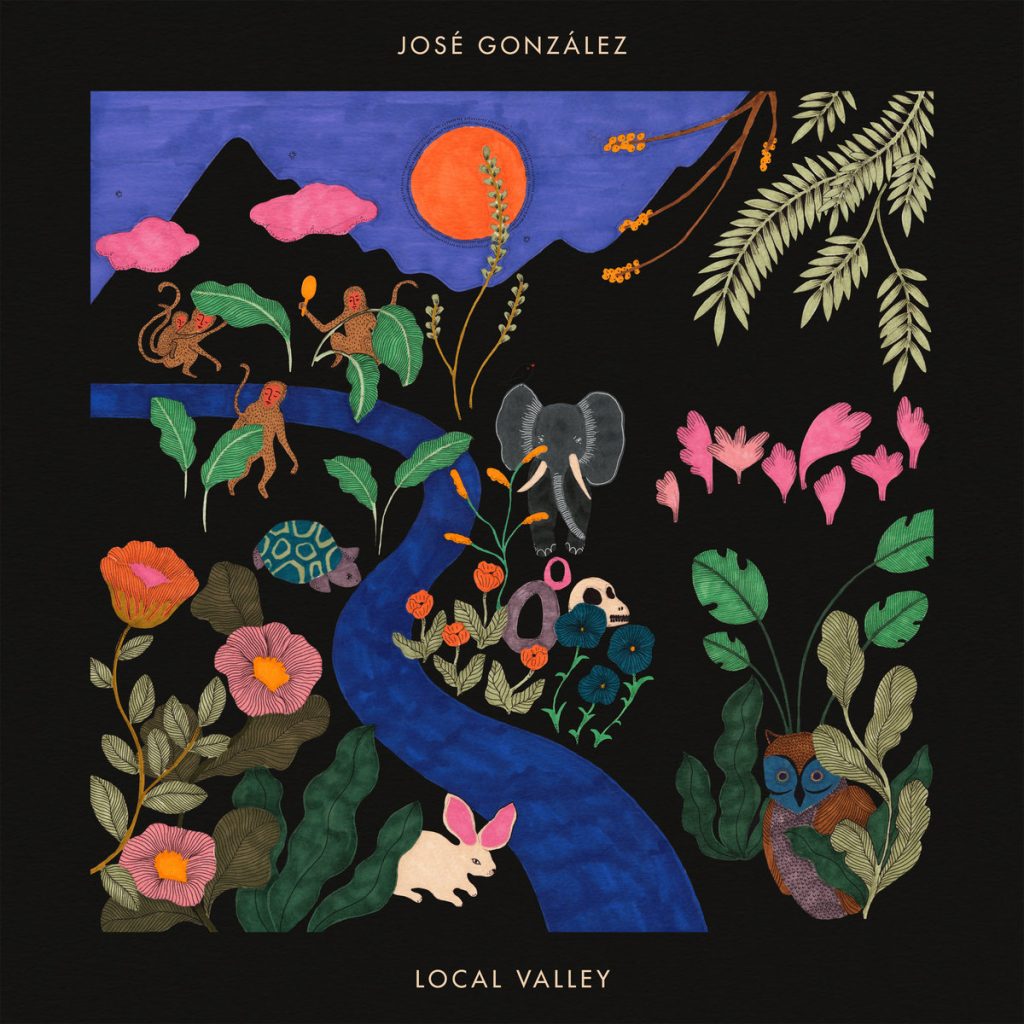Beats, Guitar, and Versatile Vocals Propel José González’s Wisftul Folk on ‘Local Valley’

On his three previous solo albums, José González showcased his mellifluous voice, bent for trancey atmospherics, and his adept guitar work that alternates between intricate fingerpicking and sultry strums. In 2010, González and Tobias Winterkorn, collaborating under the moniker Junip, released the pop-rock project Fields, following it with 2013’s eponymous LP. The duo also contributed two songs to the soundtrack for The Secret Life of Walter Mitty.
With his fourth solo LP, Local Valley, González further explores his brand of wistful folk. “Visions” features reverb-splashed vocals and an upbeat guitar accompaniment. “Look at the magic of reality / while accepting with all honesty / that we can’t know for sure what’s next,” González declares, suggesting that we can approach life with a sense of awe even as we accept that the future is uncertain.
“Void” and “Horizons” are evocatively spacious, reminiscent of Gregory Alan Isakov as well as The Clientele’s 2000 alt-folk/dreampop debut, Suburban Light. González demonstrates his vocal range, transitioning from baritone to tenor with ease. On “Head On,” he executes a catchy acoustic riff while offering the album’s most infectious melody. The lyrics of “Valle Local” may prove elusive for non-Spanish speakers, though they’ll still be engaged by González’s skillful guitar playing and crystalline vocal.
“Move your body baby,” González sings on the Latin-inspired/enticingly rhythmic “Swing.” “Tjomme,” driven by an equally irresistible and dance-y beat, is accented by an ambient guitar part. “What would you say if you had to leave today?” González poses on “Line of Fire,” prompting the listener to face their mortality and live fully in the present. The austerity of his verses contrasts with the sumptuous layering of his choruses, bringing to mind the sublime soundscapes of early Fleet Foxes.
While González’s songs are indeed compelling, his work might benefit from more streamlined syntheses of acoustic timbres, dreamy textures, Latin beats, and pop-resemblant hooks à la his work with Junip. In this way, González might distinguish himself more clearly from his indie-folk predecessors and contemporaries, making optimal use of his unique influences and background.


